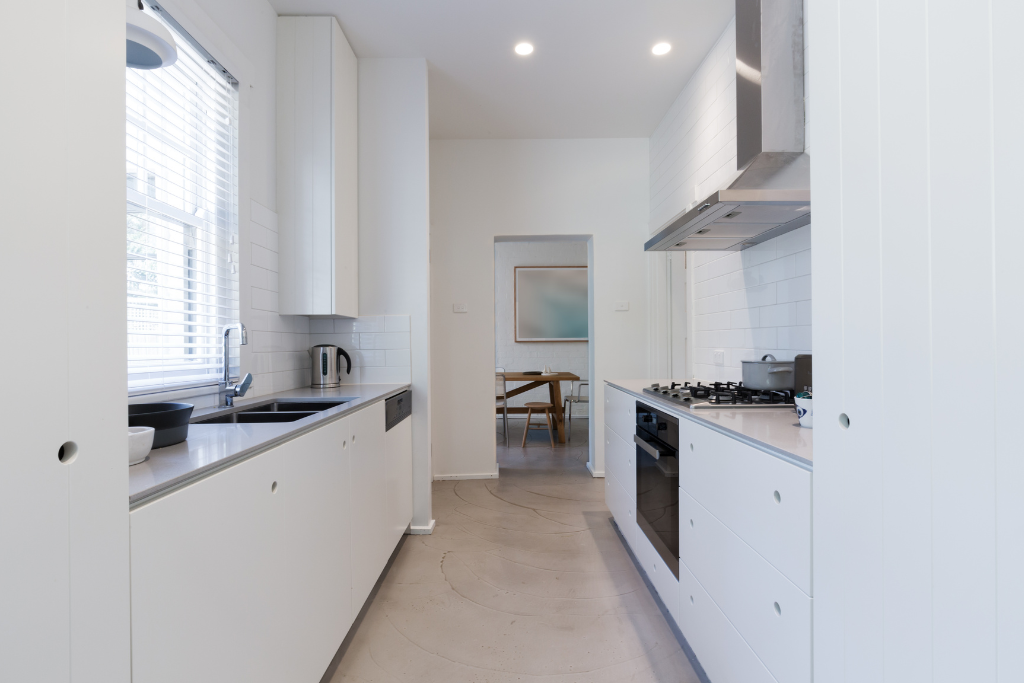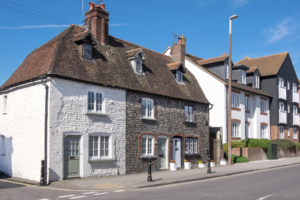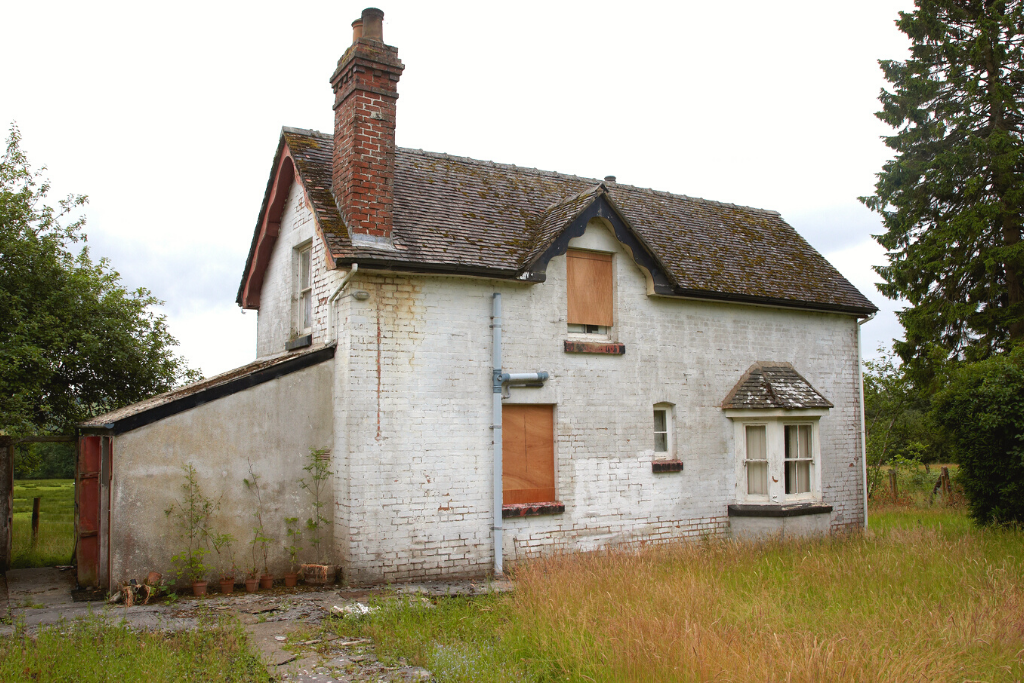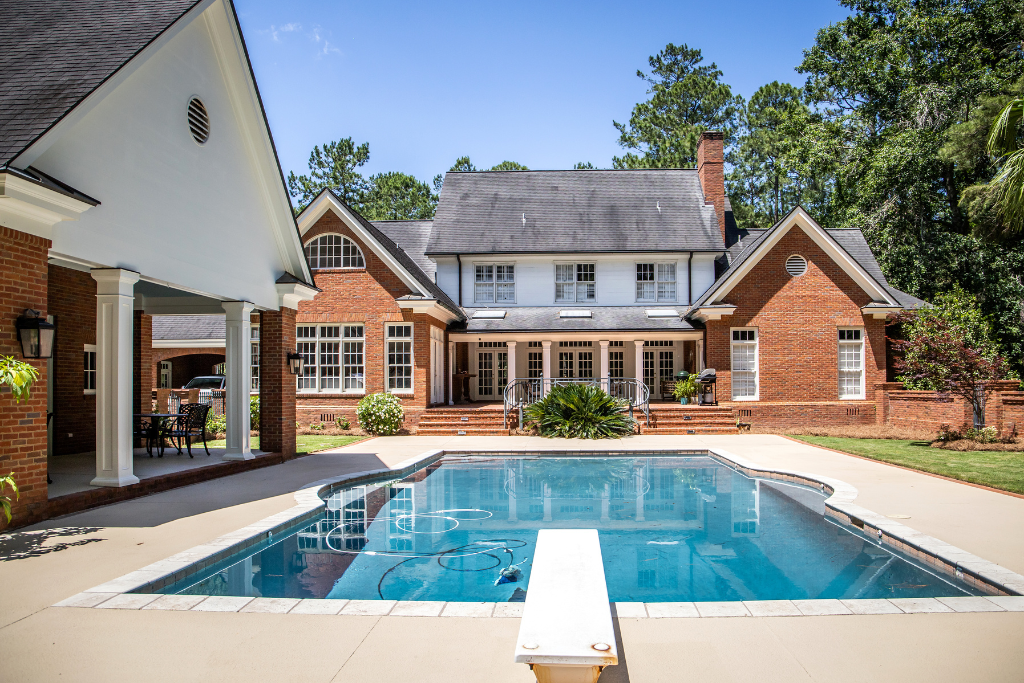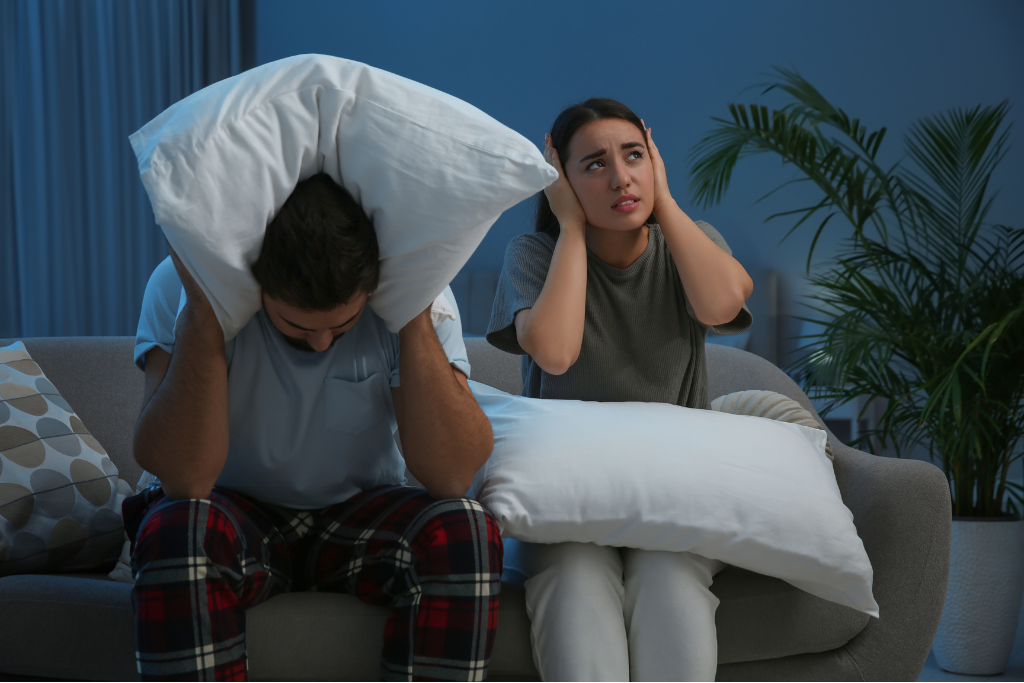
Selling Your House With Noisy Neighbours Solutions
Looking at how you can sell a house with noisy neighbours, how it can impact your search for a buyer and how we can help you sell your home regardless of nuisance neighbours.

Alexandra Ventress ★ Digital Content Writer
Table of Contents
Everyone at some point or another in their lives has had a dispute with their neighbours. Whether it is as minor as something such as a one-off noise problem or something slightly more serious such as boundary disputes, from time to time, people will fall out. But what do you do when the one off noise problem becomes a nightly occurrence?
You can be left feeling trapped in your own home and may even wish to move house because of it. But can your nuisance neighbours have an effect on your house sale?
If you are selling house with nuisance neighbours, then read on! In this blog, we will be looking at problem neighbours what to do, what to disclose when selling house with noisy neighbours, and how we can help you get your home on the open market, noisy neighbours or not!
Looking for a quick answer? Check out our interactive menu to the left!
What Do I Need to Disclose About My Neighbours When Selling?
When it comes to selling your home, you are legally required to disclose any neighbour disputes you may have had. Though what exactly is classed as a dispute is open to interpretation, you need to be wary that failure to disclose a boundary dispute or dispute over shared house maintenance could result in the new buyer seeing you for misrepresentation so it is wise to tread carefully.
If you have had a noise issue over loud music that has not been repeated or a minor issue that has been resolved in an amicable matter, then you will not need to disclose this. But if you have had any of the following issues, then you will be legally required to disclose this to the new buyers:
- A boundary dispute – this includes issues surrounding hedges, fences, or land ownership
- Shared maintenance – disputes surrounding guttering, gardens, communal areas, or drains
- Reporting – If you have had to report your neighbour to the police or local authority or written to them regarding an issue
- Noise disputes – late-night parties, loud music, noisy pets and children are all common noise complaints
- Building work disputes – Any disputes over building work that may have been done on the properties will need to be disclosed
- Verbal abuse – if your neighbours are becoming verbally or physically abusive, then you should keep notes and contact the police where appropriate
Do you have to declare noise complaints when selling a house UK?
As we have already mentioned, it can be hard to know exactly what qualifies as a dispute. If you have had the occasional noise complaint that has been settled amicably, then there will be no need to mention this to potential buyers. However, if you are regularly suffering from excessive noise as a result of your neighbours, then this will need to be disclosed. Failure to do so can result in a misrepresentation suit from the new owner of your property. Instead, it is better to declare noisy neighbours on your sellers property information form.
Do sellers have to disclose bad neighbors?
If you have a problem with noisy neighbours when selling, you may be reluctant to disclose information regarding them in the fear of scaring potential buyers off. If the issues with your neighbours are small and have been amicably resolved, then you should not worry too much. However, if you and your neighbour have major and unresolved issues, such as a months-long fight over damage caused by a neighbour to a home or flat, or serious disputes over property boundaries, then you are legally required to disclose this when selling.
You can do this using the TA6 Property Infomation Form where you must disclose any and all issues from the past and present which may affect the property. This includes present, past, and even resolved, and any that may be at risk of occurring. If you are unsure about what you should include on the form, talk to your solicitor. You should disclose anything you think is relevant and they will be able to tell what you do and don’t need to include.
How long are you liable after selling a house UK?
In the UK you can find yourself being liable for a property for 6 years after you have sold it. This is because under the Misrepresentation Act 1967 if a seller has not been honest about aspects of the home that become an issue for the current owner, the seller will find themselves legally liable for 6 years.
This means if you have a neighbour dispute, structural issues, or Japanese knotweed that you have not made your buyer aware of, you have the potential to end up in court.
Thankfully, there is a way to help reduce your liability. By offering as much information as possible, you are able to reduce your liability. Whilst you may not want to scare off potential buyers, it is far better to be open and honest about any problems your property may have to help avoid issues later down the line. The best way you can do this is through the TA6 Seller’s Property Information Form. This form allows you to declare any issues with the property, from neighbour disputes to structural issues and is important documentation, especially if the buyer takes you to court further down the line. If you are not honest or misrepresent the buyer in any way, you run the risk of facing major costs in compensation and legal action later down the road.
Can I resolve my noisy neighbour disputes?
Although it can be incredibly challenging, you may be able to resolve neighbourly disputes. In order to stand the best chance of resolving the issue, you should try and solve any problems as they happen. This means being open and friendly with your neighbours and working with them to find the best solution. Otherwise, things can escalate and you may end up struggling to sell.
However, if your neighbour is unwilling to resolve the issue at hand, you will need to tackle the issue in a different way.
If your neighbour lives in a rented property, then you should approach your neighbour’s landlord and request their help to resolve the conflict at hand.
If they are homeowners, you will need to try a different tact. You could write to your neighbour and ask if they are willing to talk to try and find an amicable agreement for all involved. If this does not work, or the agreement is breached, you could write to your neighbour once and more and ask if they would be willing to participate in mediation services to help end the conflict.
If the mediation is unsuccessful or your neighbour refuses, then your dispute will qualify as a statutory nuisance and you will then need to contact your local council about the problem. You are also able to contact Citizens Advice for more guidance and help in handling a dispute.
If the dispute involves harassment, violence or any other illegal behaviour you will need to contact the police.
Should the previous attempts to bridge the dispute be unsuccessful, then you may wish to consider court action. This can be expensive and lengthy so you should try all of your other options before taking your dispute to a judge.
Can I sell my house with bad Neighbours?
Yes, you can! Whilst neighbour disputes can be tricky to navigate, they do not mean that you cannot put your home up for sale! When it comes to sell a property with noisy neighbours, there are three popular routes that sellers often take. These are selling through either a cash buyer, a property auction, or an estate agent. As with any selling option, each of these ways comes with pros and cons, which we have explored below…
Cash house buyer
The first option that you may wish to explore when dealing with noisy neighbours selling house is selling to a cash house buyer. A cash buyer is a person or a company who is able to purchase your property without the need for a loan or a mortgage. Because of this, they are often a more secure sale that is less likely to fall through, and as they do not need a loan or mortgage they can purchase your property in a time scale that suits you.
Furthermore, cash buyers are not likely to be put off by things like disputes with neighbours. They will often buy any house in any condition, meaning structural issues or neighbour problems are not a concern for them.
However, as with every selling decision you will need to shop around for cash buyers. Not every company operates in the same way, and some have been known to play some fairly underhanded tricks. In order to make sure that you are going with the best option, you should check to ensure they are a member of a regulatory board such as the Property Ombudsman or The National Association of Property Buyers. You should also shop around for offers and check online reviews to ensure you are going with the best possible option.
Another downside to selling through a cash buyer is that they will not offer you full market value for your property. Exactly how much below market value they will purchase your property for will vary from cash buyer to cash buyer, however on average you can expect between 5 – 10% below market value, but between 15-30% below are also fairly common.
Property Auction
Another method for selling house because of noisy neighbours is to sell through a property auction. A property auction works by setting a minimum reserve price for your property. Prospective buyers will then bid on the property until the reserve price is met. The highest bid over the reserve price will win the lot and be the new owner.
The main advantage of selling through a property auction is that it attracts serious buyers. This is because once the gavel falls, the winning bid becomes legally binding. This means that the new owner cannot pull out of the sale without facing legal consequences.
An auction is a great way to sell a house with noisy neighbours, as property auctions are often favoured by those who are looking for their next investment or development.
However, if you are looking for a quick sale a property auction is less than ideal. This is because they involve a lot of waiting on both sides of the sale. You will need to wait for the next property auction to enter your property, which can sometimes be months away. Then once the sale is done you will need to wait for paperwork to be signed and completed, and you can end up waiting longer to sell your property than you originally planned to.
Furthermore, selling at a property auction is not without costs. In return for marketing and selling your property, auction houses charge a fee which will come out of your final profit.
Estate agent
If you are looking to sell your property with nuisance neighbours, then another selling route you may have considered is an estate agent. An estate agent will undertake all of the heavy lifting in your house sale, from marketing to viewings and negotiations in return for a percentage of the selling price.
Selling through an estate agent is a great selling option as it is their job to sell properties. Neighbour disputes are not uncommon and by selling with an estate agent, they will be able to help you negate the disputes and get your home sold on the open market.
Furthermore, estate agents are able to help take the stress out of a house sale by taking care of the legwork to ensure the sale goes as smoothly as possible.
Selling house with noisy neighbours
Selling house with noisy neighbours can be difficult, but it doesn’t have to be. Here at The Property Selling Company, we believe selling a house should be three things: fast, effortless, and free.
We have made it our mission to change the way that you sell your home. We offer a full online estate agency service but without the fees and the hassle. Rather than forking out for expensive legal bills and estate agents’ fees we cover them for you, it’s just one of the ways that we help to take the stress out of selling.
Our dedicated team of property experts will be by your side throughout the process and can help you sell your house with noisy neighbours in as little as 28 days.
So, if you are dealing with noisy neighbours selling house and are ready to get onto the open market, then get in touch today and fill out one of our free, no-obligation online valuation forms today!


